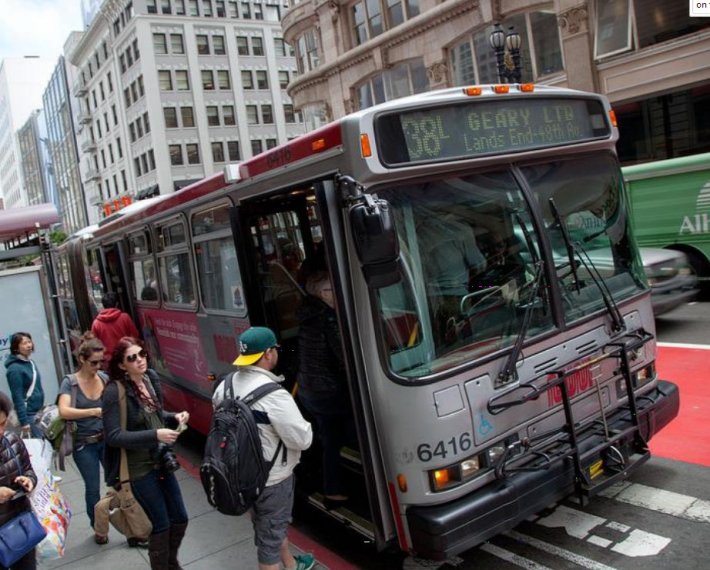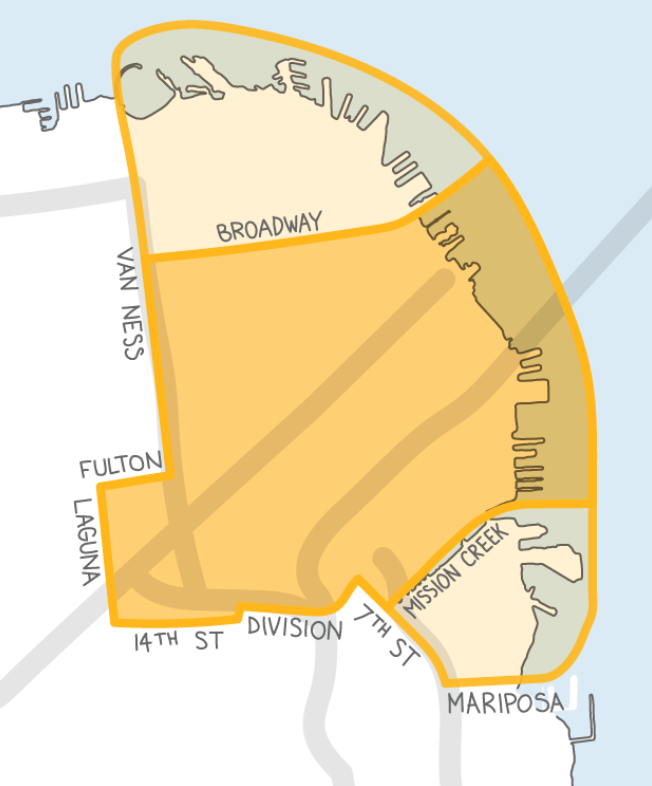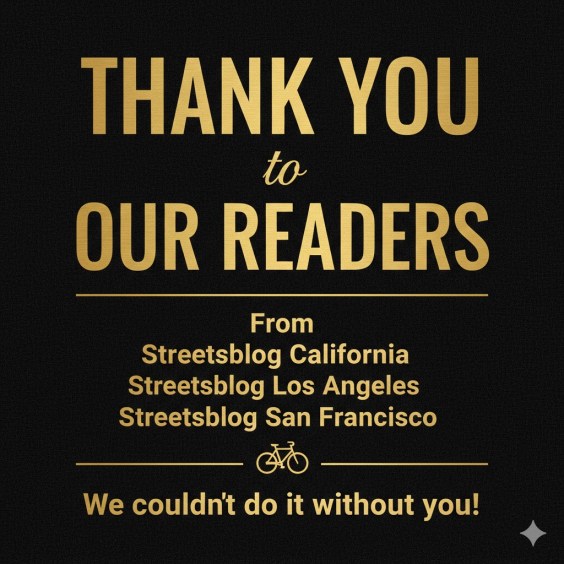Muni officials expect to have a full staff of bus and train operators this spring, finally ending a shortage that has led to canceled runs and excessive overtime spending since at least the 1990s.
Muni Operations Director John Haley said Muni has ramped up its operator training to fill the backlog by April or May, though he's more confident on fully staffing bus operators than streetcar operators by that point.
"We have two training classes in the pipeline, so we should be in good shape on the rubber tire side," Haley told Streetsblog in an email.
Currently, Muni is short 40 rail operators -- 30 for Muni metro lines and 10 for the F-line streetcars, Haley said. For buses, Muni needs 75 additional drivers to make currently scheduled runs, and will need an 30 more operators for a planned service increase in April.
Muni canceled between 55 and 73 runs each day over a three-day sample period in mid-May, the SF Examiner reported last June. Haley said the rate of missed runs has recently run as high as 6 percent.
It's not clear when the last time Muni had all the operators it needs to make its scheduled runs, but according to a 2008 SPUR article, the shortage has lasted since at least 1998. The numbers have fluctuated over the years, often running as high as several hundred missing operators as attrition outpaced hiring.
If the backlog is filled this spring, the question then becomes how long Muni can hold the line. An end to the shortage has been predicted before. In May 2011, an SFMTA spokesperson told CBS the rail operator backlog would be filled by July of that year.
Back in June, Transport Workers Union Local 250-A President Eric Williams told KQED he estimated the shortage at 200 full-time and 251 part-time operators.
Muni wasn't allowed to hire part-time operators until voters passed Proposition G in 2010, though the agency has since struggled to maintain its part-time staffing. In 2012, Muni management converted most of its 95 part-time operators to full-time to make up for a drop in full-time operators. Without the flexibility that part-time operators provide, Muni must pay full-time workers expensive overtime to make up for gaps in service.
Muni's on-time performance has worsened over the past year, dropping from 60 percent to 54 percent, though Haley says Muni officials aren't sure why. The operator shortage is just one of the chronic problems plaguing Muni service, along with vehicle breakdowns and delays caused by car traffic. The City Controller's Office has estimated that Muni delays cost the economy at least $50 million each year.
Haley said the operator shortages lead to a downward spiral as drivers who pick up the slack work overtime more often and get burned out from the stress of the job. When bus runs are canceled, the buses that do show up get more crowded, riders get more frustrated, and drivers become more worried about staying on schedule.
"You're digging a huge hole for yourself," said Haley. "There's nothing good that can happen from it."






